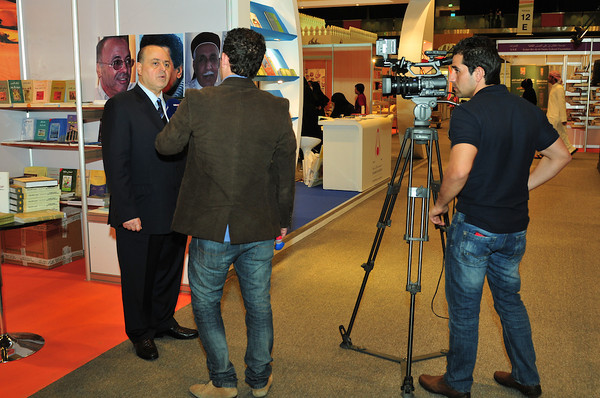Tripoli, April 7
Defence lawyers have called on Libya to hand over Saif Al-Islam Qaddafi, son of the late Libyan dictator Muammar . . .[restrict]Qaddafi to the International Criminal Court (ICC), alleging that he has been “physically attacked” and kept in “total isolation” since his capture by Zintani militiamen last November.
In a strongly worded statement, Xavier-Jean Keita and Melinda Taylor also complained that Saif was “suffering from pain due to lack of dental treatment”, which they said the Libyan authorities holding him had taken no steps to relieve.
The NTC has responded by reiterating its established position that Saif must be tried for the crimes of which he is accused inside Libya.
The ICC issued warrants for the arrest of Muammar Qaddafi, Saif Qaddafi and Abdullah al-Sannusi, Qaddafi’s former intelligence chief, in June 2011, four months after the situation in Libya was referred to the court in an unanimous decision by the United Nations Security Council. The ICC accused all three men of crimes against humanity.
In addition to concerns about his treatment, the ICC has raised fears that Saif could not receive a fair trial inside Libya, hence the calls for him to be handed over to be tried at The Hague.
Rights groups such as Amnesty International, which claimed recently that Libya does not have a functioning court system and so was “unable to conduct effective investigations”, have agreed with these fears.
“An unfair trial before a Libyan court where the accused could face the death penalty is no way to guarantee justice and accountability”, the rights group said.
However, the NTC has repeatedly rebutted these concerns, insisting that Libya is the right place for Saif to be tried, and that the Libyan judicial system will be competent to try him fairly.
They also point out that under the ICC’s own rules its right to try someone only comes into effect if the country where the crimes took place refuses or is unable to act. That is not so in this case.
Moreover, the ICC’s chief prosecutor, José Louis Moreno-Ocampo, has not ruled out the possibility of the ICC agreeing to Libya proceeding with its case, so long as any trial complies with ICC standards.
“As Libyans have decided to do justice, they could do justice and we’ll help them do it”, Moreno-Ocampo said back in November 2011. “If they prosecute the case [in Libya], we will discuss with them how to inform the judges and they can do it. But our judges have to be involved”, he added.
Moreno-Ocampo has also repeatedly reminded observers that the ICC exists as a court of last resort, to be used only when the national judicial system in which a case would otherwise be tried is deemed either unable or unwilling to deliver a fair trial.
For the ICC to insist that Saif be tried outside Libya would therefore be a significant vote of no confidence in Libya’s new authorities.
Perhaps aware of these sensitivities, and seeking to dampen the fallout from this latest dispute, Moreno-Ocampo has repeated his assertion that Saif could be tried inside Libya so long as the Libyans present the ICC with a credible plan. “According to the rules, Libya has the primacy to prosecute Saif, so if they present this to the International Criminal Court judges, probably they will get an approval”, he told reporters on Thursday.
Even if the ICC does ultimately conclude that Saif should be tried at The Hague, this will not happen unless Libya’s government accedes to that decision. The ICC has no powers with which to coerce the Libyan government to hand Saif over, which perhaps also explains Moreno-Ocampo’s conciliatory stance.
Tweet
[/restrict]








